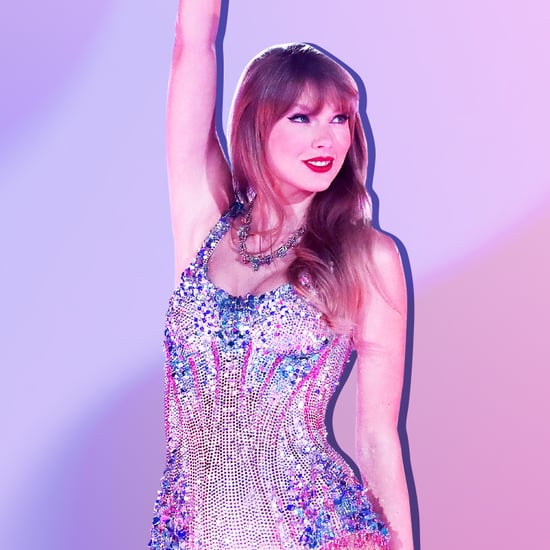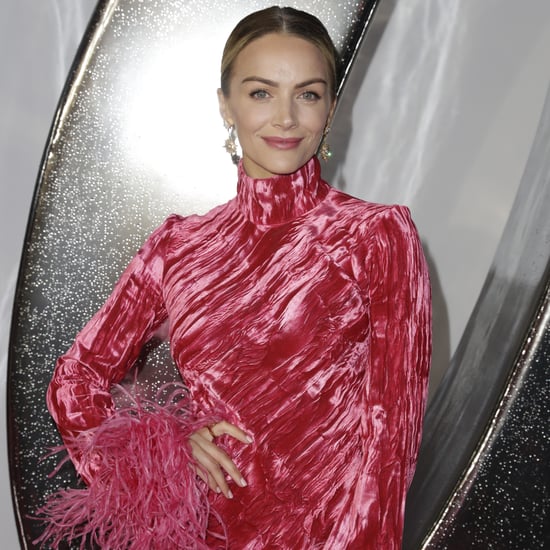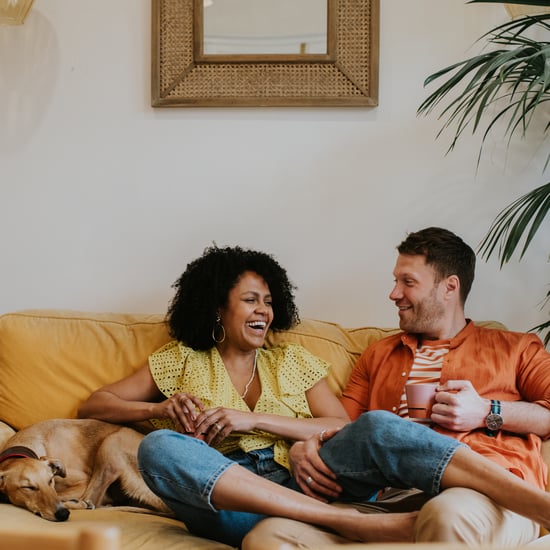Margot Is Making Sure Women Get Paid For Their Advice
Have You Ever Really Had a Mentor? (No, Not a Manager) Margot Is Here to Change That
Despite a thriving career in the entertainment industry, Joss Richard never had a mentor. She had managers, sure, and industry connections born out of networking, but no mentors — no one to help her establish career goals, and dole out advice on how to achieve them. So, not only did she indeed seek out a mentor, but Joss is in the process of establishing an entire platform to help other women get one too.
Originally from Toronto but currently residing in Los Angeles, Joss is a producer who's worked for Netflix, The Ellen DeGeneres Show, and The Walt Disney Company, where she is currently. Disney was also the company that introduced Joss to her first official mentor through a program recently rolled out to address a lack of connection employees were feeling due to the pandemic.
Though she personally benefited from the mentorship program, Joss was left feeling a "gap" existed in the workforce, especially for women. "Unless you were connected with someone through a mutual friend or you were connected through like a college alumni program, it's not very common to find a mentor," Joss told POPSUGAR. Not long after, she conceptualized Margot.
Margot is an online network helping women-identifying and non-binary individuals schedule one-on-one time with qualified mentors, who have been individually vetted across various industries. Mentors and mentees meet virtually as often as they'd like, with Margot taking over the Zoom scheduling of it all. Meetings are categorized three ways: a 20-minute talk, a more in-depth 45-minute conversation, and three 45-minute sessions. Eventually, Joss envisions in-person meetings for participants in the same city, and she has plans for a robust events calendar.
Most important to Joss, however, was that Margot mentors be paid. And though each mentor has complete control over their rate, that's actually proven to be a bit of a challenge leading up to the April launch date. "Honestly, I would say maybe 80 percent of the mentors that we have did reach back out to me saying, 'I don't know what to charge. I've never done anything like this before,'" Joss said, adding that she has since done additional industry research to help offer mentors guidance on what they should charge. "That helped me realise this is something that is not common."
Learn more about the benefits of mentorship and how Margot will work by reading our interview with Joss ahead.
POPSUGAR: I'd just love to hear more about the events that led to the conception of Margot. When and why did you first come up with the idea?
Joss Richard: When I started at Disney, they offered a mentorship program. I never had a mentor nor had I ever joined a mentorship program, and I didn't feel like I needed to just because I felt like I was in a good place in my career. I felt like I had powerful women around me, but I was new to the company at the time. So I was like, why not? I'm going to join.
"The lines are often blurred between what's networking and what's mentorship."
When I was assigned to my mentor, who was an amazing woman, it was very eye opening. I realised that a lot of the relationships I thought I had that were mentor figures were really networking relationships. The lines are often blurred between what's networking and what's mentorship. When I had that first session, it was the first time I ever sat down with someone and was able to say, "This is where I am in my career, this is where I want to go, and how can you help me?"
After I had that first session, I was talking to a few of my girlfriends and like myself, they understood the value of mentorship, but they didn't have mentors either. That was really just because they didn't know where to find one. Unless you were connected with someone through a mutual friend or you were connected through like a college alumni program, it's not very common to find a mentor. And there are so many female empowerment communities, but those are really based off of networking, and they don't really offer that one-on-one personal time with a mentor. So I thought, "OK, I feel like there's something here. I feel like there's a gap."
I'm sure you can also relate to this, but when I moved to LA and started working at these notable companies, I got an influx of people on LinkedIn reaching out to me or through Instagram. And they were just asking like, "Hey, I was wondering if I could pick your brain. How did you get into the industry? You know, I'd just love to talk over a cup of coffee." And at first I was like, "Oh my god, someone wants to talk to me. That's serious. Yes, of course."
PS: It's flattering.
JR: Yeah. So I did all of the phone calls. I met up with people in person. I did the coffees and after a few of those, you kind of realise, "Hey, my time and my knowledge are valuable, and this is a lot of work." As I was talking to a lot of women about their experience, they felt the same way. A lot of women want to support other women, but often we don't hear back from the people that are requesting our time, and it's very draining to sit down with someone for an hour and share your knowledge, help them with their career, and then after you just don't hear from them again.
What I'm trying to do with Margot is create a platform for women to feel OK to charge for their time. That's a conversation that's still yet to be normalized where a lot of women want to, but they don't know how. They don't know how to ask to be compensated. You can't really ask someone to Venmo you before a phone call. Unless you are an established coach of some sort, or you have a website where people can book time with you, the way to ask to be compensated still hasn't been solved. It's still a very uncomfortable conversation.
PS: For someone who's never had one before, how can a mentor help you in a way that a manager or a boss might not?
JR: There's a little more transparency with your mentor. If you are having problems with work — you don't necessarily know how to navigate your way to a promotion or to a different department — that may not be a conversation that you're able to have with your manager. If you are, then that's amazing. But sometimes it's easier to talk to someone who's not in it. A mentor is someone able to share their experience and help guide the mentee in a way that a manager can't. They're able to share their experiences, their successes, their failures.
PS: What would you say are some of the most important marks of a good mentorship? How can a mentee get the most out of the experience? And what is the most important skill for a mentor to master?
JR: When I was chasing mentors at the beginning, I was really looking for CEOs, VPs, women with 15, 10 plus years experience. As I was talking to one of our mentors — she owns a sports' agency, so she represents athletes — she was saying, "My first job was in 1998, and I can talk about being the only woman in the room, but I can't talk about how I landed my first job, because girls in college or straight out of college can't relate to my experience. It's such a different time."
I think we have this idea of what a mentor should be, and it should be someone that is older than us, someone that has like X amount of years more [experience] than us, but a mentor is someone who has a different experience. As I was talking to that woman, she was saying, "I might want a mentor that's Gen Z or a millennial to understand that social space or understand how young girls think."
That's why I realised, "Oh, this is not what mentorship is. Mentorship is talking to someone with different experience than you, who can help guide you in an area that you don't know." At least for Margot, there's not a qualification. It would be ideal if the mentor had at least three years experience in their field, but we're not asking that they be of a leadership level or they be a manager. Those that haven't reached that level yet still have value to share.
PS: The challenges that Black, Latinx, and other women of colour face in the workforce are often different and doubled, and the same can be said for trans women and non-binary individuals. How will Margot help ensure those challenges and needs are uniquely addressed?
JR: Margot is an inclusive community. We accept women and gender marginalized individuals, so that includes trans women, non-binary individuals. It's a very inclusive community, and that's something that I'm really working on to represent.
It's important for me to have representation. When you go on the website and you see, these are our mentors, I want them to be women of all diversity, all ages, all backgrounds, areas of the world, and also just various industries as well. So that way, no matter who goes on there, they will be able to see themselves. Whether that be someone who's 16-years-old in high school trying to find a mentor, or whether that's someone who's 40 trying to find a mentor, I definitely want there to be representation. I'm very, very mindful of who I'm onboarding, and making sure that there definitely is representation in all those areas.
PS: Margot is meant to work virtually, which is perfect for right now, but are there plans to take some of these services offline in the future?
JR: Yes! Oh my goodness. I'm so excited. 2022 is my goal, but yes, right now everything is virtual. Zoom would be ideal, or it could be a FaceTime or it can be a phone call — however the mentor-mentee wishes to communicate. All virtual. But when things get back to normal, whenever that may be, there's an option to find mentors based off of location if you do want that face time with them. So that will be an option when you're booking to have like that actual cup of coffee, as opposed to a virtual one.
Something down the line that I'm hoping for is to be able to have a small dinner series where we would have a few of our mentors, and then some of our mentees would be able to join. It would be a very intimate dinner. A long-term, big goal is to be able to have speaking events of some sort. I feel like the idea is definitely scalable in a sense of what we can do down the line.
PS: Are there plans to roll out any grants or free subscriptions offered to those who aren't able to afford the program at this time?
JR: Although I want to help women like you and I, who are already mentoring people, who do deserve to be paid, I don't want mentorship to be seen as something of a privilege. I don't think that those who can afford mentorship are the only ones who deserve it.
We're working with these two nonprofits who are helping girls of colour in the south. One of them is called Girls For a Change, and we are working with them to provide the girls that they work with free access to our mentors. And there's another one, but we're in the process of working out what the partnership looks like. The girls that they work with are in areas of extreme poverty, so what I'm working towards is to take a percentage of our profits, and then donate that towards them, that way they can actually send women out to those girls and have face-to-face time.
PS: What is the best piece of business advice you've received?
JR: When I was coming up with the idea for Margot, I was talking to a lot of different women because I wanted to get a sense of if there was a need for this. I was on the phone with I would say like four women a day for like a month. This one girl that I know, she's actually a mentor, but she started her own app and she was telling me, "Just do it. Just create it because you don't know who's having the exact same conversation right now."
That really hit me, those words. And so I was like, "You know what? Whatever stage I'm in right now, I'm just going to put it out there. As I go, as I build the business, then it can change, but it's OK to do that while your business is public."
This interview has been edited and condensed for clarity.








